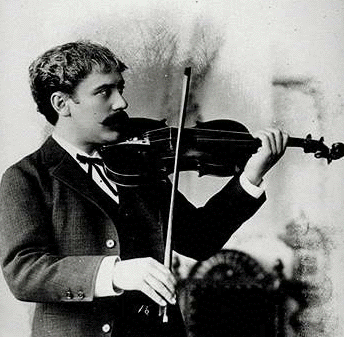Rodger McFarlane, Super Man
The news of activist Rodger McFarlane’s death, by suicide, has left me both stunned and deeply saddened. Rodger was an extraordinary, multi-faceted person whose breadth of accomplishment was staggering. We officially met under the most democratic of circumstances, having been selected as members of a jury on a personal injury trial in Manhattan’s Supreme Court, in the courtroom of Justice Donna Mills. I recognized Rodger from having seen him at a concert by pianist Sara Davis Buechner; he remembered me from having attended one of my concerts and was full of kind praise.
Rodger was over six and a half feet tall with a positively charismatic presence, usually with a glowing smile on his face that balanced out a bald head and protruding ears. As we could not talk about the case itself – which lasted about five weeks – we spent numerous hours in the jury room learning about the other jurors and their experiences (when we weren’t reading newspapers, doing crossword puzzles and the like). Rodger would mention, in the most conversational way and with a southern lilt, an aspect of his activities and I would then learn another small portion of his astounding achievments.
At that time – which was the spring of 2001 – he was caring for his friend, the playwright Larry Kramer (and founder of The Gay Man’s Health Crisis), who was in dire need of a liver transplant. Rodger acknowledged the difficulties of the situation and mentioned that he had some major backup plans – if a liver became available halfway across the country, he was going to make sure Larry and it met up – and I became aware that this was someone who was not only incredibly resourceful but extremely loyal. Through reading Rodger’s obituary I learned that he was the first executive director of GMHC and could easily understand how this had come to be. Larry Kramer also got his transplant which, happily, was successful.Rodger was an articulate leader in the gay rights movement and championed the rights of others who were disenfranchised, including the transgendered community. He was a founder of ACT UP and, with Larry Kramer, was an activist in promoting research and effective treatments for HIV/AIDS. He also nursed many of his gay friends during the early days of the AIDS epidemic, back when it was a mysterious virus that amounted to a death sentence for those infected. This resulted not only in his becoming licensed as a respiratory therapist but also the respected author of books and articles on caring for seriously ill persons.
He had an enormous empathy that was tempered by a mischievous humor. The trial for which we were jurors was a personal injury case complicated by many defendants and a language barrier that required translators for some of the testimony. We disliked one of the lawyers in particular and mocked him whenever we were back in the jury room, but admired the judge, who not only ran a no-nonsense, organized courtroom but was extremely stylish down to her dreadlocks. On occasion she would summarily dismiss us from the courtroom to speak with the lawyers, which led Rodger to slyly refer to her as “the spankin’ judge,” leading all of us to imagine that not only was she chastising the misbehaving lawyers but also taking them over her knee and paddling them.
I also learned about Rodger’s participation in rather extreme athletics, from triathlons to excursions in some pretty dicey places (such as across the North Pole ice cap), and he usually came to the courthouse dressed somewhat athletically and with a small backpack. As the trial progressed I felt comforted by seeing him, partly because at that time my neighbor across the hall, who was in his thirties and also very tall, had had a breakdown apparently brought on – as I later learned – by cocaine and other drug binges and his own AIDS diagnosis. He became completely paranoid and hostile, which he directed towards me and my husband: such were his antics that I started carrying pepper spray just to leave my apartment, with 911 dialed into my cellphone, just in case he really carried out the attacks he was threatening. Based on my neighbor’s actions, which included hurling himself against our door, screaming in his apartment at all hours and throwing trash at our window, I tried to obtain a restraining order against him. With no threatening telephone messages or direct physical attacks, however, I was unsuccessful. (I recall leaving the police station after learning that they would issue a restraining order only after he pushed me down the stairs or assaulted me in a similar fashion.)
Needless to say, it was a very stressful time and being around Rodger was reassuring and a respite from the hellish situation at home, which was resolved after the neighbor moved out at the end of August. (That summer I went back to the same courthouse on behalf of my landlady, who was evicting him for nonpayment of rent.) As I recall, Rodger offered to help me in this situation but I declined, figuring he had better things to do.
Rodger moved to Denver a few years ago and his athletic pursuits evidently caused him to break his back in 2002, which led to chronic pain. According to the articles I have read recently, he also was experiencing some heart problems. Evidently he did not wish to become further incapacitated nor did he wish to burden others with his care – this man who had devoted his life to caring about and for others – and after writing farewells to friends and paying off his bills, he went to Truth or Consequences, New Mexico and, on May 15th, fatally shot himself on a hiking trail.
In teaching at NYU I often pass by the LGBT office (which offers support and services for gay, lesbian, bisexual and transgendered students), the existence of which no doubt owes a large debt to Rodger and others like him. I shall always remember this man with great admiration, fondness and respect – along with, I suspect, thousands of others – and it breaks my heart that he would not permit others the honor of caring for him, in his declining health, in return. His legacy remains in our hearts and in the many individuals he has helped.
Read the New York Magazine article about Rodger.



















